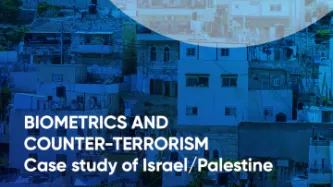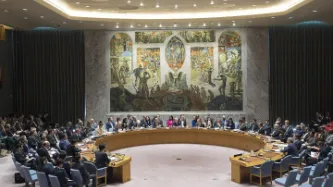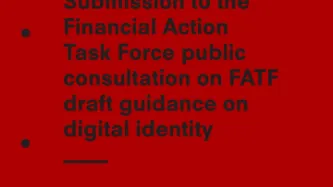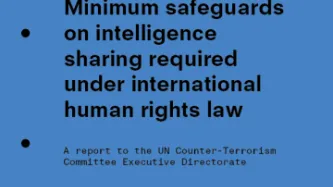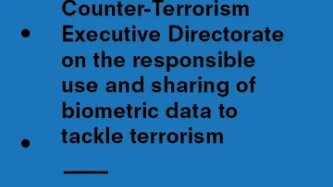Advanced Search
Content Type: Long Read
In this new briefing, we identify the most significant concerns on the UN Countering Terrorist Travel Programme (CTTP), and put forward a range of recommendations to mitigate some of the human rights risks associated with the surveillance of travellers. We based our briefing on publicly available information and our own research, outlining the purposes and activities of this UN programme. We shared a draft of this briefing with the United Nations Office of Counter- Terrorism (OCT), which…
Content Type: Report
In Israel/Palestine, the Israeli government has been deploying biometrics, including cutting-edge facial recognition technology, in the name of counter-terrorism. The Israeli state routinely surveils and severely restricts Palestinians’ freedom of movement using myriad technologies, including biometrics, which result in furthering the policies of systemic segregation. Since many Palestinians live under Israeli occupation, they have little control over the way their sensitive data is turned…
Content Type: News & Analysis
The UN Special Rapporteur on the promotion and protection of human rights and fundamental freedoms while countering terrorism, Professor Fionnuala Ní Aoláin together with Dr. Krisztina Huszti-Orbán, released today a key report on the “Use of Biometric Data to Identify Terrorists: Best Practice or Risky Business?”.
The report explores the human rights risks involved in the deployment of biometrics emphasising that
in the absence of robust rights protections which are institutionally embedded…
Content Type: Advocacy
Privacy International welcomes this opportunity to submit comments to the FATF consultation. The draft recommendation is an improvement on existing guidance that we have reviewed.
We also welcome the calls of the FATF for accommodations that will relieve burdens upon individuals who are being excluded from the financial sector, as a result of the FATF’s prior recommendations.
PI believes that identity systems must empower people. The initial question surrounding the development of any…
Content Type: Advocacy
Privacy International's submission to the consultation initiated by the UN Special Rapporteur on counter-terrorism and human rights on the impact on human rights of the proliferation of “soft law” instruments and related standard-setting initiatives and processes in the counter-terrorism context.
In this submission Privacy International notes its concerns that some of this “soft law” instruments have negative implications on the right to privacy leading to violations of other human…
Content Type: Advocacy
Faced with the transnational dimension of terrorist-related activities, United Nations Security Council resolutions have emphasized the need for international cooperation in information-sharing, both for the purposes of collecting intelligence and judicial assistance.
Privacy International recognises the importance and benefit of intelligence sharing in the context of preventing and investigating terrorism or other genuine, serious threats to national security. The organisation is concerned,…
Content Type: Advocacy
Identification system across the world increasingly rely on biometric data. In the context of border management, security and law enforcement, biometric data can play an important role in supporting the investigation and prevention of acts of terrorism.
This is clearly reflected in UN Security Council resolutions on counter- terrorism. Notably, Resolution 2396 (2017) the UN Security Council decided that states shall develop and implement systems to collect and share biometrics data for…

